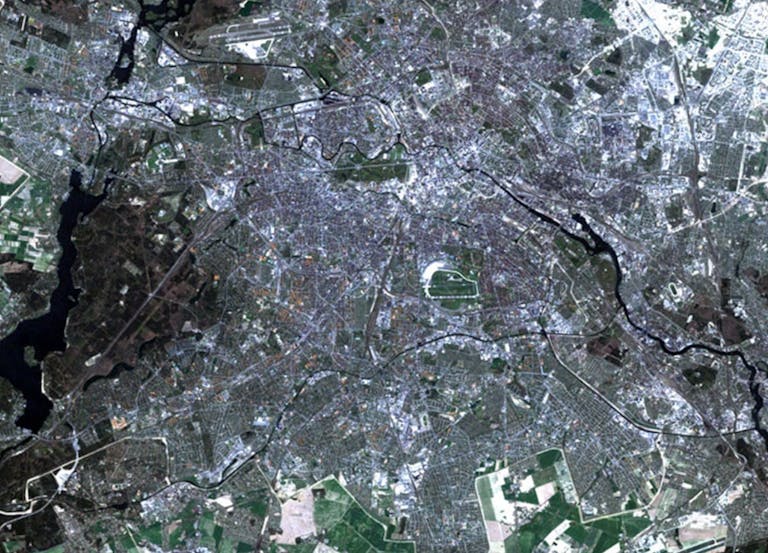Fake oligarchs, luxury penthouses
Real Review is, on the surface of things, an architecture magazine. Tug a little at that label, however, and things fall apart. Real Review’s eleventh issue does indeed contain one article about buildings — high-net real estate, to be precise — but this article is slippery. Composed as a double interview with the Hungarian artist Andi Schmied and her alter-ego, the piece can also be read as a comment on artist personae. (Schmied went undercover as an oligarch to infiltrate Manhattan’s ultra-luxury high-rises with her fake husband, Zoltan, for a book of photos.)
This tendency of a Real Review piece to wriggle away from any neat categorisation is what makes the magazine such an intriguing read. The magazine is taglined ‘What it means to live today’, and every issue, editor Jack Self presents readers with a series of surprising answers. Number 11 contains essays on lawns, and high-vis, and The X-Files, but topics are treated as points of departure. (The X-Files, in this reading, is a way into dissecting 2020’s conspiracy theories.)
Over Zoom, Jack explained the theory that inspired him to create Real Review, and dug into issue eleven’s theme: ‘What we believe’.
This issue is themed ‘What we believe’. Why?
The pandemic has fostered an entirely new and virulent form of conspiracy theory. Underpinning those theories are some profound questions: Is democracy really a good thing?; What is global society trying to achieve?; How does it work?
I’m interested in the fact that at the same time as asking those questions, people are turning away from reality and towards astrology and tarot.
In your essay for Real Review, ‘This Is All There Is’, you write that you hope spending one year indoors, “looking at the same few square metres with great intensity, will foster the belief that this world is all there is, and we learn better how to be in it”. Why is that important?
My approach to the world is pretty well captured by that article. I’m a materialist, which means that I think that everything around me is all there is. And that’s already magical, because there’s so much about reality we don’t know or understand.
What do you mean?
Materialism is just a philosophy that says: the real world exists, and we can try to find out something about it. As opposed to saying what philosophers have said for 500 years, which is that the real world probably exists, but our senses are faulty so we can’t know anything about it. That leads to people like Elon Musk saying that we live in a computer programme.


So you don’t think we live in a computer programme?
No I don’t! I’m looking around me right now and I can see a cigarette packet and a garden chair and a blanket and a TV. Each of those objects has a very precise historical and economic context that generated its production. Historical materialist analysis says asking questions about those objects can tell us something about the world we live in.
So Real Review is about interrogating the objects around us?
Yes. What I’m interested in understanding is, just how it got to be that way, and what it means that it is that way. I love asking people, “You lived in communist Russia, what was that like?”, “How did you buy a bus ticket?”, “What happened when you needed a new shirt?”.
But you can also ask that question about what’s happening now. It’s almost as impossible to know what’s happening in our present as it is to know what’s happening in our past or what will happen in our future. You could say, “What did it feel like after 911?” or “What did it feel like during the Arab Spring?”. These are big historical questions, but in the case of Real Review it’s an ongoing question.








